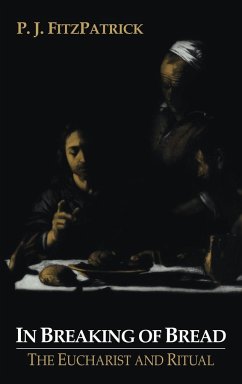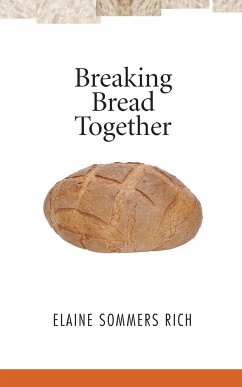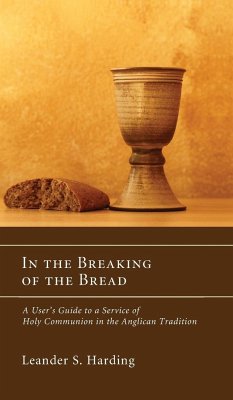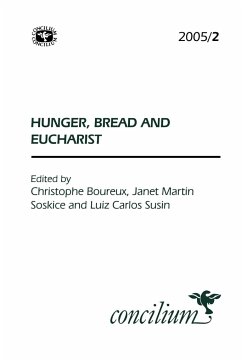
In Breaking of Bread

PAYBACK Punkte
62 °P sammeln!
For many years, the Roman Catholic church has used the term 'transubstantiation' to express the presence of Christ in the Eucharist. Of late, however, although proposed replacements have not found favour, the term itself no longer has the place and setting it once had, and debates about transubstantiation have died down. This book is written in the belief that reflection upon the matter is indispensable. It proposes that transubstantiation and its proposed replacements are all fundamentally similar in their confusions - they divorce appearance from reality because they fail to do justice to th...
For many years, the Roman Catholic church has used the term 'transubstantiation' to express the presence of Christ in the Eucharist. Of late, however, although proposed replacements have not found favour, the term itself no longer has the place and setting it once had, and debates about transubstantiation have died down. This book is written in the belief that reflection upon the matter is indispensable. It proposes that transubstantiation and its proposed replacements are all fundamentally similar in their confusions - they divorce appearance from reality because they fail to do justice to the Eucharist as a rite. The changes in Roman Catholic worship have sharpened the need for an account that will do justice to this, and the book is an attempt to provide one. It is also an endeavour to discuss central problems in the Roman Church today.
Table of contents:
Introduction; 1. Against Transubstantiation; 2. Against Transignification; 3. History and Language; 4. Signs and Disguises; 5. Eucharistic Proclamation; 6. Corpus Mysticum; Abbreviations; Methods of Citation; Bibliography; Index
P. J. FitzPatrick rejects transubstantiation in this controversial approach to the Eucharist, and argues that its newer replacements are fundamentally similar in their confusions. The author tries to do justice to the Eucharist as a rite, and in so doing considers central issues and problems in the Church of Rome today.
A brilliant and controversial analysis of why transubstantiation and its newer replacements are inadequate.
Table of contents:
Introduction; 1. Against Transubstantiation; 2. Against Transignification; 3. History and Language; 4. Signs and Disguises; 5. Eucharistic Proclamation; 6. Corpus Mysticum; Abbreviations; Methods of Citation; Bibliography; Index
P. J. FitzPatrick rejects transubstantiation in this controversial approach to the Eucharist, and argues that its newer replacements are fundamentally similar in their confusions. The author tries to do justice to the Eucharist as a rite, and in so doing considers central issues and problems in the Church of Rome today.
A brilliant and controversial analysis of why transubstantiation and its newer replacements are inadequate.














